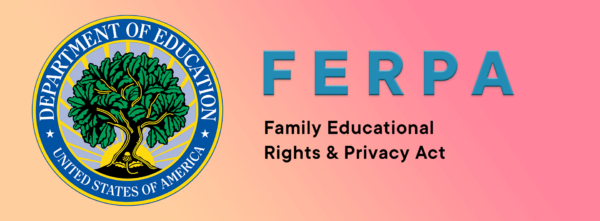Brief Overview of FERPA
The Family Educational Rights and Privacy Act (FERPA) is a federal law enacted in 1974 in the United States. FERPA protects the privacy of student education records and ensures that parents and eligible students have the right to access and control the release of these records.
Detailed Information about FERPA
FERPA, also known as the Buckley Amendment, applies to all educational agencies and institutions that receive funding from the U.S. Department of Education. These include public schools, private schools, and postsecondary institutions. FERPA gives parents certain rights with respect to their children’s education records. These rights transfer to the student when they reach the age of 18 or attend a school beyond the high school level.
FERPA regulates the following key aspects:
- Access to Records: Parents or eligible students have the right to inspect and review the student’s education records maintained by the school.
- Amendment of Records: Parents or eligible students have the right to request that a school correct records they believe are inaccurate or misleading.
- Consent for Disclosure: Schools must obtain written consent from parents or eligible students before disclosing personally identifiable information (PII) from education records, except under certain specified circumstances.
- Exceptions to Consent: FERPA allows schools to disclose PII without consent to certain parties, such as school officials with legitimate educational interests, other schools to which a student is transferring, and specified officials for audit or evaluation purposes.
Key Features of FERPA
| Feature | Description |
|---|---|
| Access to Records | Parents and eligible students have the right to inspect and review education records. |
| Amendment of Records | Individuals can request corrections to inaccurate or misleading information in education records. |
| Consent for Disclosure | Schools must obtain written consent before disclosing personally identifiable information (PII) from education records, with exceptions for certain circumstances. |
| Exceptions to Consent | FERPA allows disclosure of PII without consent in specific situations outlined by the law. |
Types of FERPA
FERPA primarily encompasses regulations related to the privacy of student education records. There are no distinct types of FERPA; instead, the law outlines specific rights and responsibilities related to the protection of educational data.
Ways to Use FERPA
- Protecting Student Privacy: FERPA ensures that educational institutions safeguard student education records and maintain confidentiality.
- Accessing Education Records: Parents and eligible students can access and review education records to ensure accuracy and completeness.
- Controlling Disclosure: Individuals have the right to control the disclosure of personally identifiable information from education records.
Problems and Solutions with FERPA
Problems:
- Data Breaches: Educational institutions may experience data breaches resulting in unauthorized access to student records.
- Misuse of Data: There is a risk of misuse of student data for purposes other than education.
- Compliance Challenges: Educational institutions may struggle with understanding and complying with FERPA requirements.
Solutions:
- Data Encryption: Implementing encryption methods to secure education records and prevent unauthorized access.
- Training and Awareness: Providing training to staff and stakeholders on FERPA regulations and best practices for data protection.
- Regular Audits: Conducting regular audits to ensure compliance with FERPA and identify any potential vulnerabilities.
Main Characteristics and Comparisons
| Characteristic | Comparison with Similar Terms |
|---|---|
| Protection of Student Data | Similar to GDPR (General Data Protection Regulation) in the European Union, FERPA focuses specifically on protecting student education records in the United States. |
| Parental Rights | FERPA grants parents and eligible students specific rights to access and control education records, distinguishing it from other privacy laws. |
| Educational Institution Focus | Unlike HIPAA (Health Insurance Portability and Accountability Act), which pertains to healthcare data, FERPA is tailored to the needs of educational institutions. |
Future Perspectives and Technologies Related to FERPA
As technology continues to evolve, the protection of student data under FERPA will likely face new challenges and opportunities. Future developments may include:
- Advanced Encryption Techniques: Utilizing advanced encryption methods to enhance the security of education records.
- Blockchain Technology: Exploring the use of blockchain technology for secure and transparent record-keeping.
- Artificial Intelligence: Implementing AI-driven solutions for data analysis while ensuring compliance with FERPA regulations.
VPN and FERPA
A Virtual Private Network (VPN) can play a crucial role in ensuring compliance with FERPA regulations by providing a secure and private connection for accessing education records and other sensitive data. VPNs encrypt internet traffic, protecting it from unauthorized access and ensuring confidentiality. Educational institutions can use VPNs to enhance data security and safeguard student privacy in accordance with FERPA requirements.
Resources for More Information about FERPA
For more detailed information about FERPA and its implementation, refer to the following resources:
- U.S. Department of Education – FERPA: Link
- National Association of College and University Attorneys (NACUA) – FERPA Guide: Link
- Privacy Technical Assistance Center (PTAC) – FERPA Resources: Link
- American Association of Collegiate Registrars and Admissions Officers (AACRAO) – FERPA Compliance Tools: Link
By adhering to FERPA regulations and leveraging appropriate technologies such as VPNs, educational institutions can ensure the protection of student privacy and the confidentiality of education records in an increasingly digital age.


